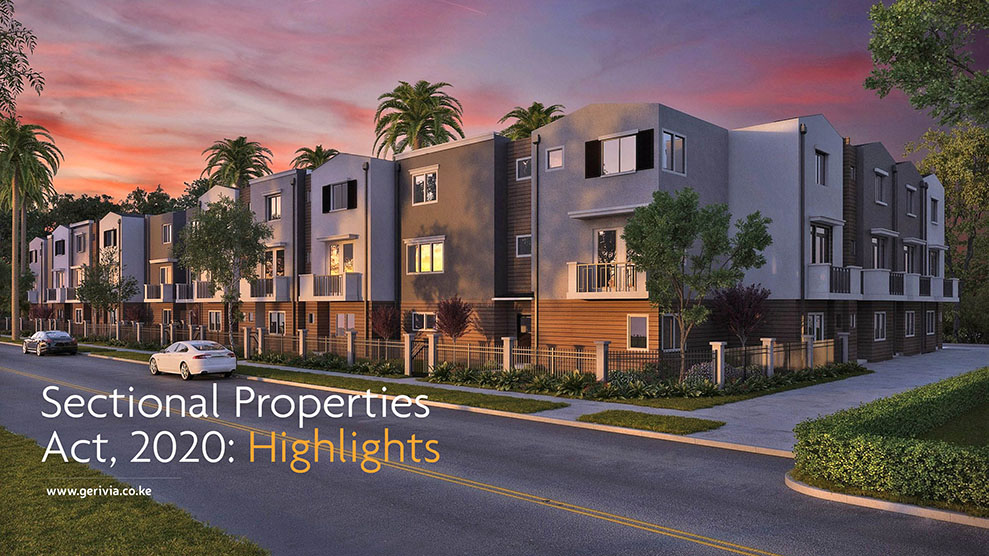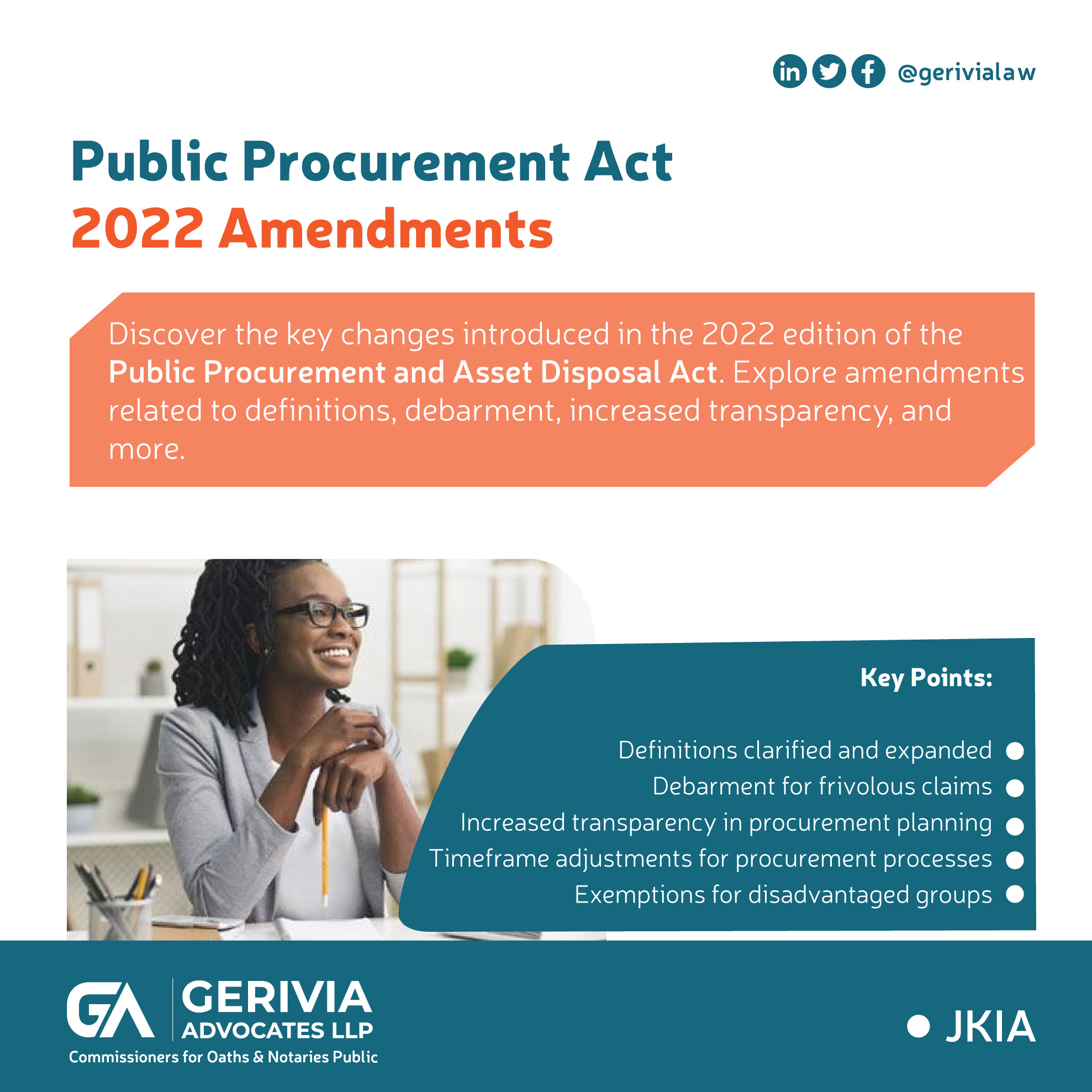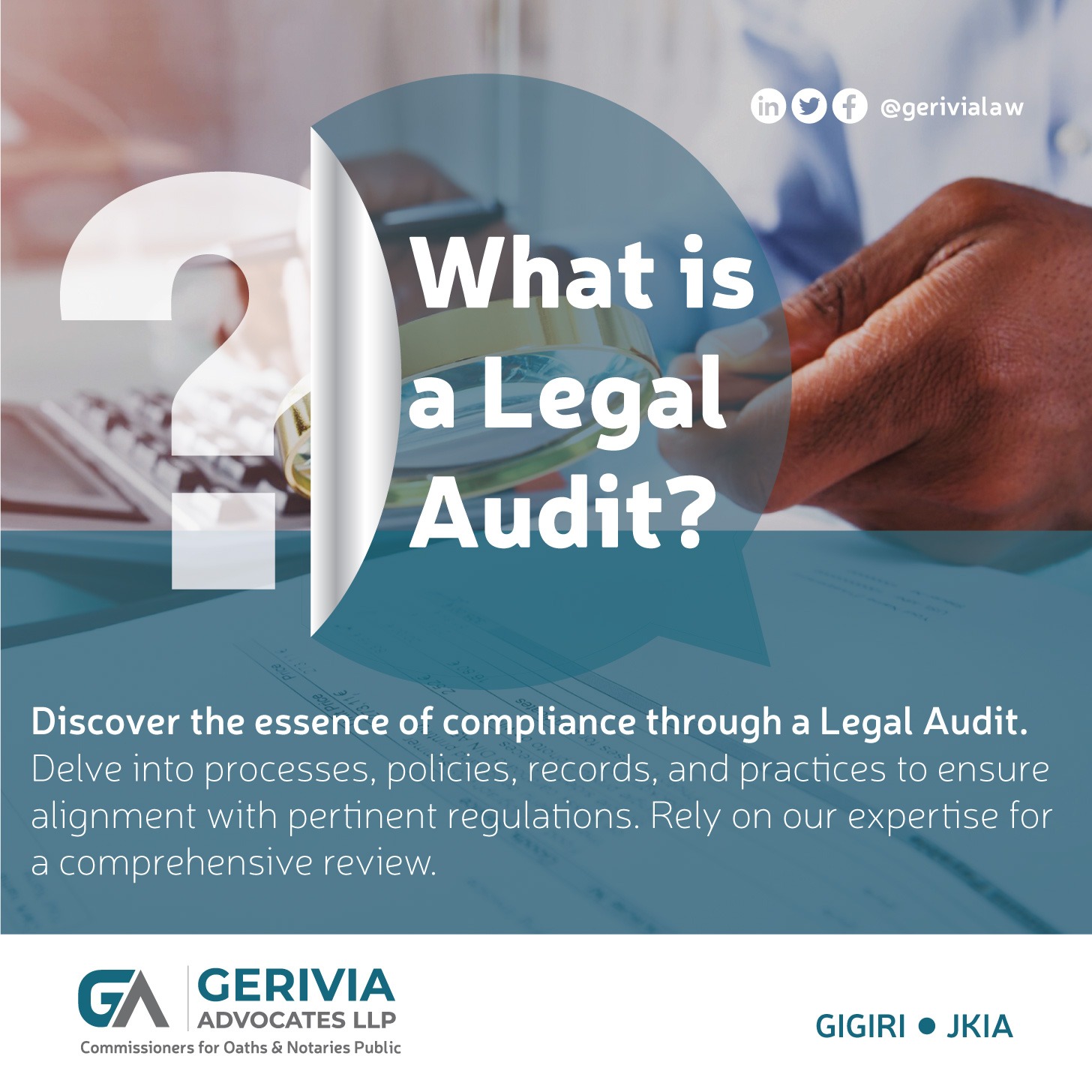I developed this Article following an interactive session with a close friend. This explains why the Article is the form of Q & A. My friend owns an apartment and after hearing a lot of chatter about the Sectional Properties Act, 2020 (which many people are terming as the “New Sectional Properties Act”), she asked the following questions, which when summed up, actually contain major highlights of the Act.
1. What is the difference between the Sectional Properties Act, 2020 & the Sectional Properties Act 1987?
The Sectional Properties Act, 2020 is aligned to the Constitution of Kenya, the Land Act and Land Registration Act, 2012. It is an improvement from the 1987 Act.
Article 68 of the Constitution of Kenya, 2010 required Parliament to revise, consolidate and rationalise existing land laws through legislation. To give effect to this Article, the Land Act, Land Registration Act and National Land Commission Act came into force on 2nd May 2012.
An example of such alignment is the omission of references to local authorities as being the approving entities and references to the repealed Registered Land Act on which the Sectional Properties Act, 1987 pegged registration. Under the Sectional Properties Act, 2020 approvals are will be done by county governments and registration will be effected under the Land Registration Act, 2012.
2. In what ways is the Sectional Properties Act, 2020 Act an improvement from the Sectional Properties Act, 1987?
-
The 2020 Act applies to leasehold properties with unexpired residue terms of not less than 21 years while the threshold under the Repealed Act was 45 years.
-
Under the 2020 Act, sectional units shall now be issued with a certificate of title (freehold property) or certificate of lease (leasehold property), and the title shall include each unit’s proportionate share in the common property while the Repealed Act provided for issuance of title deeds for sectional units.
3. What does the Act apply to?
The Act applies in respect to land held on a freehold title or on a leasehold title where the unexpired term is not less than 21 years and there is intention to confer ownership.
4. What does the Act deal with?
Division of buildings into units to be owned by individual proprietors and common property to be owned by the proprietors of the units as tenants in common.
5. What is a sectional unit?
It is space situated within a building and includes its proportionate share in the common property. They include apartments, flats, masionettes, town houses or even offices
6. Where and how is a sectional unit described?
It is described in a sectional plan by making reference to the floor, wall & ceilings within a building
7. How will I confirm ownership of a sectional unit?
Through a certificate of lease (for leasehold property) or through a certificate of title (for freehold property)
8. What are examples of long term leases?
Any lease for more than 21 years intended to confer ownership of apartments, flats, masionettes, town houses or even offices.
9. Is a long term lease registered before the enactment of the Act affected?
Yes.
10. What action will be required for the affected long-term leases?
A conversion which means all long-term sub-leases that are intended to confer ownership of an apartment, flat, maisonette, town house or an office that were registered before the commencement of the 2020 Act shall be reviewed to conform to Section 54 (5) of the Land Registration Act, 2012.
*Section 54 (5) of the Land Registration Act, 2012 states: “The Registrar shall register long-term leases and issue certificates of lease over apartments, flats, maisonettes, townhouses or offices having the effect of conferring ownership, if the property comprised is properly geo-referenced and approved by the statutory body responsible for the survey of land.”
11. Who initiates the conversion?
The developer, the Management Company or the Owner.
12. Will the original title be required for the conversion process?
Not necessarily. The Registrar can dispense with this requirement if the developer is unwilling to surrender the original title or if the developer is unavailable.
13. As an owner of a sectional unit, will I be expected to pay stamp duty?
No, you will not be required to pay stamp duty during the conversion.
14. What if I fail to comply with the requirement for conversion?
The Registrar can register a restriction to prevent further dealings.
15. As an owner of a sectional property, how long do I have to ensure the conversion is done?
Any lease for more than 21 years intended to confer ownership should be converted within 2 years of the commencement of the Sectional Properties Act, 2020.
Should you have any queries or need any advice with respect to the law on sectional properties in Kenya, please do not hesitate to contact the Gerivia Advocates LLP team at legal@gerivia.co.ke




